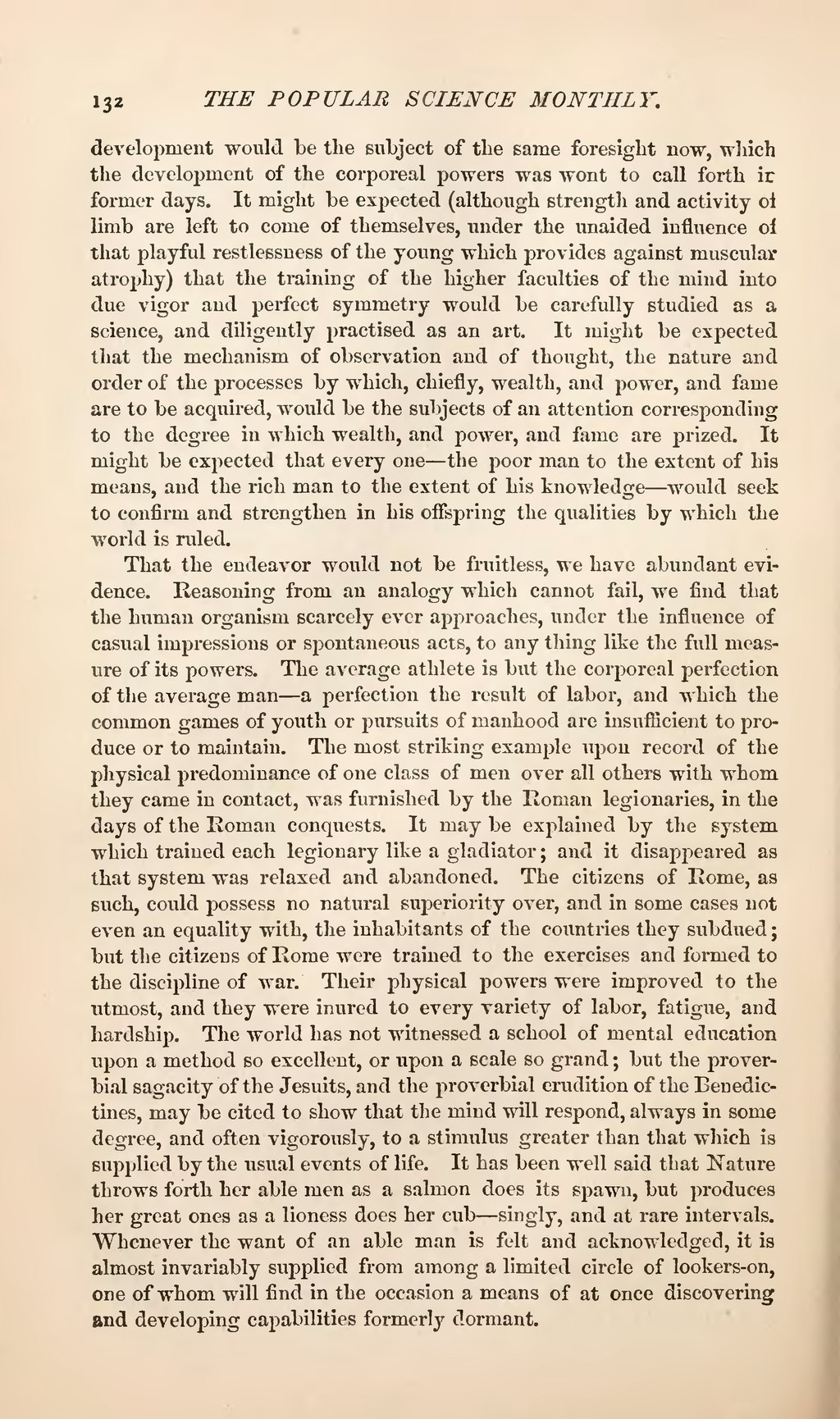development would be the subject of the same foresight now, which the development of the corporeal powers was wont to call forth in former days. It might be expected (although strength and activity of limb are left to come of themselves, under the unaided influence of that playful restlessness of the young which provides against muscular atrophy) that the training of the higher faculties of the mind into due vigor and perfect symmetry would be carefully studied as a science, and diligently practised as an art. It might be expected that the mechanism of observation and of thought, the nature and order of the processes by which, chiefly, wealth, and power, and fame are to be acquired, would be the subjects of an attention corresponding to the degree in which wealth, and power, and fame are prized. It might be expected that every one — the poor man to the extent of his means, and the rich man to the extent of his knowledge — would seek to confirm and strengthen in his offspring the qualities by which the world is ruled.
That the endeavor would not be fruitless, we have abundant evidence. Reasoning from an analogy which cannot fail, we find that the human organism scarcely ever approaches, under the influence of casual impressions or spontaneous acts, to any thing like the full measure of its powers. The average athlete is but the corporeal perfection of the average man — a perfection the result of labor, and which the common games of youth or pursuits of manhood are insufficient to produce or to maintain. The most striking example upon record of the physical predominance of one class of men over all others with whom they came in contact, was furnished by the Roman legionaries, in the days of the Roman conquests. It may be explained by the system which trained each legionary like a gladiator; and it disappeared as that system was relaxed and abandoned. The citizens of Rome, as such, could possess no natural superiority over, and in some cases not even an equality with, the inhabitants of the countries they subdued; but the citizens of Rome were trained to the exercises and formed to the discipline of war. Their physical powers were improved to the utmost, and they were inured to every variety of labor, fatigue, and hardship. The world has not witnessed a school of mental education upon a method so excellent, or upon a scale so grand; but the proverbial sagacity of the Jesuits, and the proverbial erudition of the Benedictines, may be cited to show that the mind will respond, always in some degree, and often vigorously, to a stimulus greater than that which is supplied by the usual events of life. It has been well said that Nature throws forth her able men as a salmon does its spawn, but produces her great ones as a lioness does her cub — singly, and at rare intervals. Whenever the want of an able man is felt and acknowledged, it is almost invariably supplied from among a limited circle of lookers-on, one of whom will find in the occasion a means of at once discovering and developing capabilities formerly dormant.
